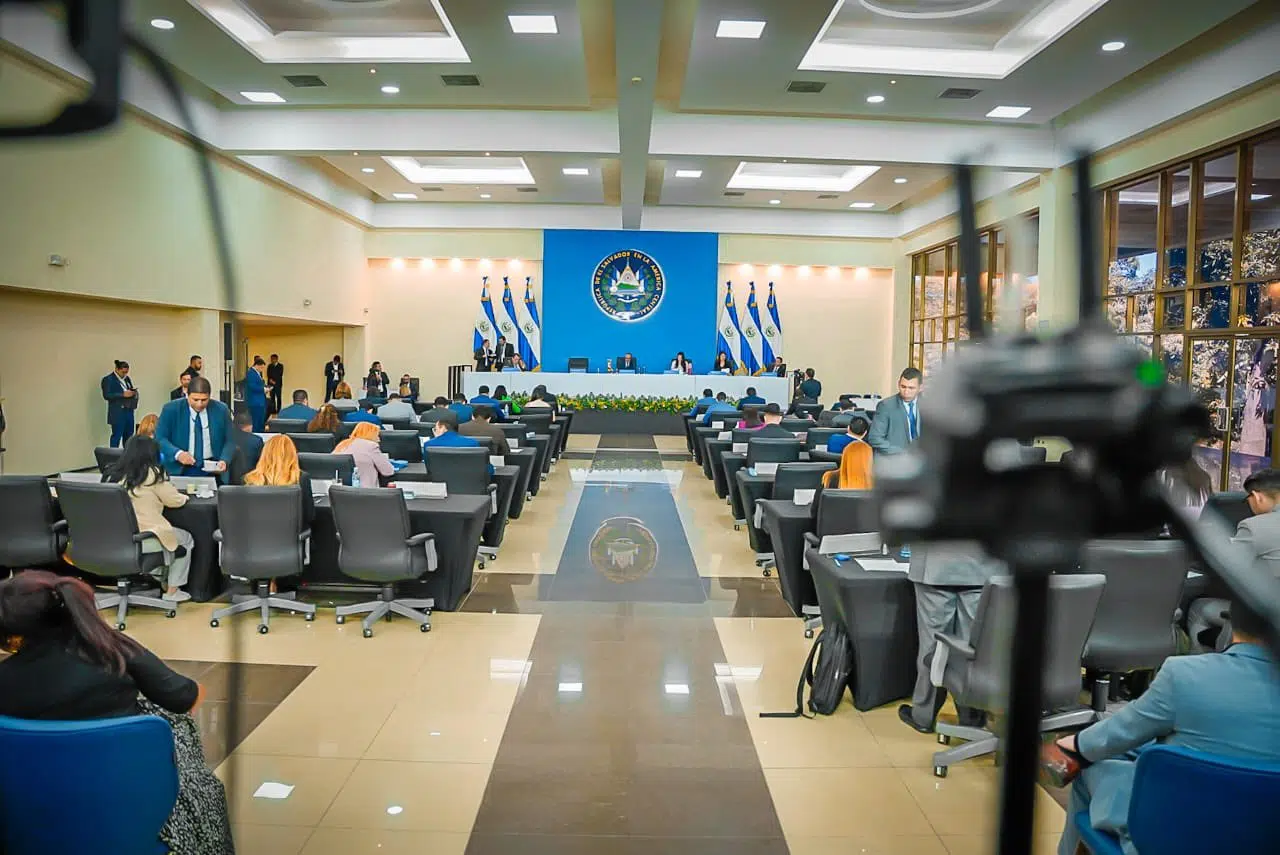The reform, which was approved by the 2021–2024 Legislature, allows the same legislature to both approve and ratify amendments to the Constitution.
Initially, constitutional amendments required a vote by two different legislatures.
This amendment was ratified with 57 votes from NI and its allies, while the three opposition lawmakers voted against it.
Clash over fast-track reforms to the Constitution
The ruling party justified this reform by citing the need to “have the necessary tools to face the social realities demanded by Salvadorans, given the constant changes the world is undergoing at a rapid pace.”
The original wording of the second paragraph of Article 248 states that the only way to amend the Constitution is through approval by a simple majority in one legislature followed by ratification with a two-thirds majority in another legislature.
With this approved amendment, it is now added that this process may be carried out in the same legislature with three-quarters of the elected lawmakers (45 out of 60).
Lawmaker Marcela Villatoro, from the opposition party Alianza Republicana Nacionalista (ARENA) (Nationalist Republican Alliance), criticized the reform and asserted that it violates the reform process established by the Constitution itself and by rulings from the Sala de lo Constitucional de la Corte Suprema de Justicia (CSJ) (Constitutional Chamber of the Supreme Court of Justice).
“You are calling yourselves constituents; you are violating the Constitution because you are not following the legal process,” she said, adding, “you have found the perfect excuse to undermine the substance of the Constitution.”
Pro-government lawmaker Caleb Navarro stated that this reform would also serve to eliminate the parties’ “political debt,” which provides them with public funds for their activities, including election campaigns.
More than four years in the making
In September 2020, during his first term in office, President Bukele appointed Vice President Félix Ulloa to coordinate the study and proposal for constitutional reforms.
It was in September 2021 that Bukele received a draft plan to reform more than 200 articles of the Constitution, but this document has not yet been presented to the Legislature.
EFE: https://efe.com/mundo/2025-01-29/el-salvador-reforma-cambios-expres-constitucion/
El Congreso de El Salvador ratifica una reforma para cambios exprés a la Constitución
La reforma, que recibió el aval de la Legislatura de 2021-2024, permite que una misma legislatura apruebe y ratifique los cambios a la Carta Magna.
Inicialmente, las enmiendas constitucionales necesitaban de la votación de dos legislaturas diferentes.
Esta enmienda quedó ratificada con 57 votos de NI y sus aliados, mientras que los tres legisladores de la oposición votaron en contra.
Choque por las reformas exprés a la Constitución
El oficialismo justificó esta reforma en la necesidad de «tener las herramientas necesarias para enfrentar las realidades sociales que demandan los salvadoreños ante los cambios constantes que el mundo enfrenta de manera veloz».
La redacción original del inciso segundo del artículo 248 establece que la única forma de modificar la Constitución es mediante la aprobación en una legislatura con mayoría simple y su ratificación con el voto de los dos tercios de los legisladores.
Con esta enmienda aprobada se agrega que este proceso se podrá realizar en una misma legislatura con tres cuartas partes de los diputados electos (45 de 60).
La diputada Marcela Villatoro, del partido opositor Alianza Republicana Nacionalista (ARENA), criticó la reforma y señaló que se estaría violando el proceso de reforma establecido en la misma Constitución y sentencias de la Sala de lo Constitucional de la Corte Suprema de Justicia (CSJ).
«Ustedes se están autodenominando constituyentes, están violando la Constitución porque no están siguiendo el proceso de ley» y «han encontrado la excusa perfecta para trastocar el fondo de la Constitución», señaló la legisladora.
El diputado oficialista Caleb Navarro afirmó que esta reforma también serviría para quitar la deuda política a los partidos, con la cual reciben fondos públicos para su quehacer que incluye las campañas políticas previas a elecciones.
Más de cuatro años de gestación
En septiembre de 2020, el presidente Bukele durante su primer mandato designó a su vicepresidente, Félix Ulloa, para coordinar el estudio y propuesta de reforma a la Constitución.
Fue en septiembre de 2021 que Bukele recibió un anteproyecto para reformar más de 200 artículos de la Constitución, pero este documento no ha sido presentado, aún, ante el órgano Legislativo.
EFE: https://efe.com/mundo/2025-01-29/el-salvador-reforma-cambios-expres-constitucion/

